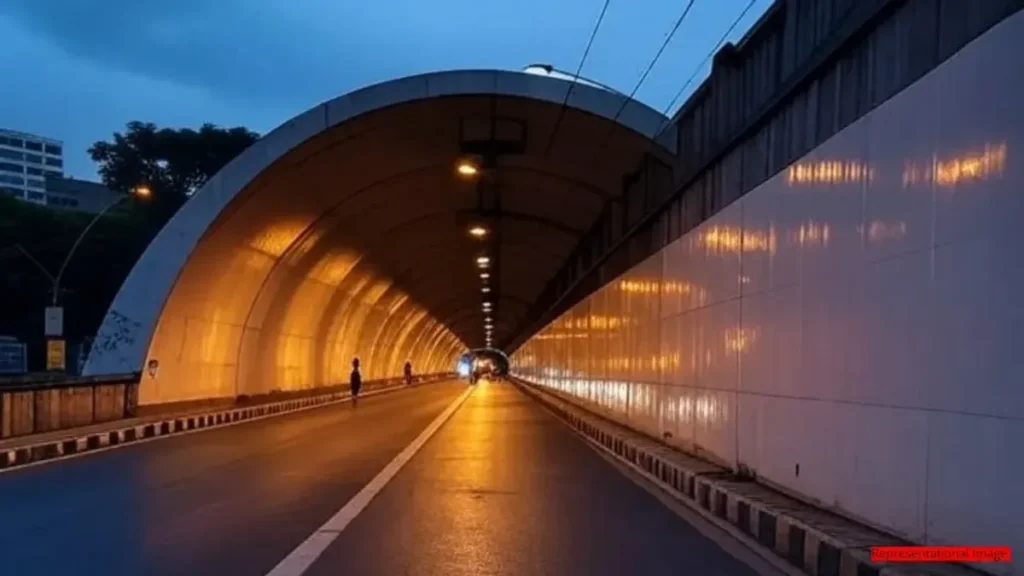Bengaluru’s controversial ₹19,000-crore twin tunnel road project connecting Hebbal to Silk Board faces a major roadblock as the NGT issues notices over alleged bypassing of environmental laws and policy violations.
Bengaluru’s ambitious ₹19,000-crore twin tunnel project – meant to connect Hebbal to Silk Board via a 16.74-km twin-tube corridor – has run into legal trouble after the National Green Tribunal (NGT) on Wednesday issued notices to multiple authorities.
Also Read:Shivajinagar metro naming sparks clash: Citizens demand Shankar Nag over St Mary
The notices follow a petition filed by Bengaluru Praja Vedike, CIVIC trustee Kathyayini Chamaraj, and environmentalist Dattatraya Devare, alleging that the project was “hastily announced” and “politically driven,” bypassing mandatory Environmental Impact Assessment (EIA) procedures.
The petition points out glaring gaps: absence of site-specific geological surveys, hydrological and flood-risk mapping, biodiversity assessments, and tree enumeration. Critics warn the project’s alignment cuts through ecologically sensitive areas, including Lal Bagh’s Peninsular Gneiss formation, Hebbal Valley stormwater corridor, and near the polluted Peenya Industrial Area – raising fears of groundwater depletion, soil instability, and worsening floods.
Independent studies, including those from the Indian Institute of Science, predict that the tunnel could push commuters away from public transport, worsen emissions, and contradict Bengaluru’s Comprehensive Mobility Plan 2020 and climate goals.
Also Read:After long protests, finally 371 trees spared at Cantonment Railway Colony in Bengaluru
Petitioners allege that the government exploited a legal loophole, arguing that tunnels are not explicitly listed under EIA Notification 2006, thus evading clearance – a move reminiscent of the controversial 2017 steel flyover episode.
As an alternative, they highlight the proposed Metro corridor along the same route, calling it a “far more sustainable, inclusive, and climate-friendly solution.” The plea before NGT seeks to quash tenders and cancel the project altogether to prevent irreversible ecological harm and uphold citizens’ constitutional right to a clean environment.
Also Read:No more “Dr” for physiotherapists: DGHS orders major change in new curriculum

